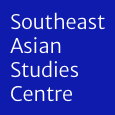About
About Us
The University of Oxford’s ASEAN Institute has unrivalled reach and impact. OSGA promises a programme that will enhance the visibility of Southeast Asian studies within the University, the United Kingdom and around the world. Supported by Oxford’s existing status as the recognised world-leader in academic area studies, the new centre will become an important global hub for discussion among academics, policymakers and private enterprise. It will produce policy papers and scholarly publications, and provide curriculum resources.
The ASEAN Institute will also focus on training outstanding students from Southeast Asia and the rest of the world, equipping them with graduate degrees in relevant areas of study across the social sciences and humanities.
This centre will facilitate fruitful exchanges of students and faculty between Oxford and Southeast Asian universities. It will support mutually beneficial and groundbreaking research in ASEAN countries. Instrumental to this vision is the establishment of six new associate professorships. These will be shared posts with a broad range of our outstanding departments.
We anticipate their specialisms to be:
Environmental sustainability of Southeast Asia to study the management of natural and cultural habitats across different countries; the varied experiences of climate change and pollution challenges; struggles over natural resources; and the implications of technologies, urbanisation and global value chains for food production and food consumption.
Regional governance (ASEAN) to study the diversity in public policy, governance and administration in different countries in the region. The postholder will explore the intersection of local, regional and global dynamics on public policy formation and in-depth case studies of administrative and governance reforms; and how state, business and civil society interact to shape national and ASEAN public policy agendas.
Politics and international relations of Southeast Asia to explore the diverse political systems of countries in the region; national responses to human security challenges, such as crime and poverty; regional and international security issues; and the implications of the rise of Southeast Asian nations for the regional and global order.
Political economy of Southeast Asia to explore the political and institutional underpinnings of the dramatic economic growth and structural transformation across the region. This incorporates attention to state interventions in markets; the politics of public infrastructure investment; state and corporate relations; labour movements and industrial relations; and multilateral and exclusive trade relations in the region and beyond. Furthermore, the postholder will explore the expansion of sub-regional economic growth zones, as the global economic centre of gravity increasingly shifts toward the region.
Digital economy of Southeast Asia to study the expansion of the digital economy of Southeast Asia and explore how those changes are transforming societies, while creating dynamic changes. The post-holder will study the impacts of changing connectivity on economies, societies and politics throughout Southeast Asia.
History of Southeast Asia to study Southeast Asia over the 18th, 19th and 20th centuries, including the interaction between indigenous states and wider trading networks and seaborne powers; the experience of western colonialism, decolonisation and nationalism; the dynamics of social and religious change; and the influence of historical memory and representation in the contemporary era.
These six key posts will expand the University’s ability to host and facilitate dialogue and exchange with Southeast Asian scholars and institutions. The ASEAN Institute will provide a thriving environment for teaching a new generation of students from all over the world in Southeast Asia studies. We aim to bring the wealth of Southeast Asian experiences and perspectives into wider comparative debates about the world, and highlight the study of Southeast Asia within diverse disciplines. This will ensure even wider and deeper exposure to Southeast Asian nations, and a greater understanding of this vital region.




